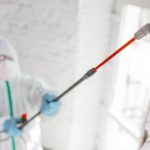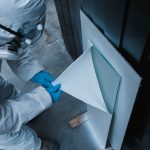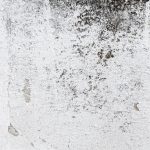
Flooding can be devastating for homes and businesses, especially in areas like Naples, Fort Myers, Cape Coral, and Bonita Springs, where storms and hurricanes frequently cause water damage. While the immediate focus is often on cleaning up the mess and repairing structural damage, maintaining good air quality after a flood is just as critical. Poor air quality can lead to health issues and long-term damage to your property.
In this guide, we’ll outline the best practices for ensuring your indoor air stays clean and healthy after a flood. If you’re dealing with post-flood issues in Southwest Florida, QCI can help. Visit qci-online.com or call us at (239) 777-2875 for professional flood recovery and air quality services.
Why Is Air Quality a Concern After a Flood?
Flooding introduces water, dirt, and debris into your property, creating the perfect environment for mold growth, bacteria, and harmful airborne particles. These contaminants can compromise your indoor air quality, leading to:
- Allergies and respiratory problems.
- Persistent musty odors.
- The potential spread of mold spores to other areas of your property.
For residents in Cape Coral and Bonita Springs, where high humidity is a constant concern, taking immediate action to address air quality after a flood is vital.
Best Practices for Maintaining Good Air Quality
Follow these proven steps to maintain safe and healthy air quality after a flood:
1. Act Quickly to Remove Water
The first step in preventing poor air quality is to remove standing water as soon as possible. Floodwater can seep into walls, floors, and furniture, creating a breeding ground for mold and bacteria.
- Use pumps and wet vacuums to extract water.
- Open windows and doors to allow air circulation.
For extensive flooding, it’s best to call professionals like QCI, who specialize in water extraction and damage mitigation in Naples and surrounding areas.
2. Dry the Affected Areas Thoroughly
Moisture left behind after a flood is one of the leading causes of poor air quality. Dry out your property by:
- Running dehumidifiers to reduce humidity levels.
- Using fans to promote air circulation.
- Removing water-damaged items like carpets and upholstered furniture.
Maintaining indoor humidity below 50% is essential to discourage mold growth, especially in humid climates like Fort Myers.
3. Clean and Disinfect Surfaces
Floodwaters often carry contaminants, including bacteria and chemicals. Thorough cleaning and disinfection help remove these pollutants from your property.
- Use a mixture of water and bleach to clean hard surfaces.
- Wear protective gear, including gloves and masks, while cleaning.
QCI offers eco-friendly cleaning solutions that are safe for your family and pets, ensuring a thorough and health-conscious approach.
4. Use Air Purifiers
Air purifiers with HEPA filters are highly effective at capturing mold spores, bacteria, and other airborne particles that can compromise air quality.
- Choose purifiers labeled “True HEPA” for the best results.
- Consider models with activated carbon filters to eliminate odors and VOCs.
For residents in Cape Coral and Naples, investing in air purifiers is an excellent long-term strategy for maintaining good air quality.
5. Inspect and Replace HVAC Filters
Your HVAC system circulates air throughout your property, so ensuring it’s clean and free from contaminants is crucial.
- Inspect HVAC filters after a flood and replace them if necessary.
- Have your ductwork professionally cleaned to remove any mold or debris.
A contaminated HVAC system can quickly spread pollutants, worsening air quality across your entire property.
6. Test for Mold
Even if mold isn’t visible, it can still be present in hidden areas like walls, ceilings, and insulation. Professional mold testing can help identify problem areas and prevent future growth.
At QCI, we offer comprehensive mold testing and remediation services for homes and businesses in Fort Myers, Bonita Springs, and surrounding areas.
7. Ventilate Your Property
Proper ventilation is key to maintaining good air quality after a flood.
- Open windows and doors to allow fresh air to circulate.
- Use exhaust fans in bathrooms and kitchens to remove excess moisture.
In humid areas like Southwest Florida, combining ventilation with dehumidifiers ensures that your property dries out quickly and efficiently.
8. Avoid Using Harsh Chemicals
While it’s tempting to use strong cleaning products, many contain VOCs that can worsen air quality. Instead, opt for eco-friendly cleaning agents that are both effective and safe.
QCI’s chemical-free cleaning methods are ideal for flood recovery, providing a safe alternative for families and businesses.
How QCI Helps Restore Air Quality
At QCI, we understand the unique challenges that flooding brings to Southwest Florida properties. Our team specializes in water damage restoration, mold remediation, and air quality improvement. Here’s how we can help:
- Water Extraction: Rapid removal of standing water to prevent further damage.
- Mold Remediation: Safe and effective removal of mold to protect your health.
- Air Quality Testing: Comprehensive testing to ensure your air is clean and safe.
- Eco-Friendly Solutions: Chemical-free methods to restore your property without harmful toxins.
We proudly serve Naples, Fort Myers, Cape Coral, Bonita Springs, and the surrounding areas. Contact us today for 24/7 assistance.
- Location: Southwest Florida
- Phone: (239) 777-2875
- Website: qci-online.com
Conclusion
Flood recovery doesn’t end with removing water and repairing damage—maintaining good air quality is just as important. By acting quickly, using the right tools, and seeking professional help, you can ensure your property remains safe and healthy for years to come.
If you’re in Naples, Fort Myers, Cape Coral, or Bonita Springs, QCI is here to help. Visit qci-online.com or call us for expert flood recovery and air quality services. Don’t let poor air quality impact your health—take action today!






